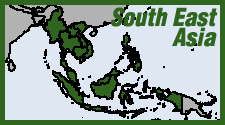 Rodrigo Duterte, the ultra-hardline president of the Philippines, ominously declared a "state of lawlessness" after a Sept. 2 bomb blast at a night market in the southern city of Davao, where he had long served as mayor. The special powers he is seizing are ill-defined, but he said he would "invite uniformed personnel to run the country." In justifying the power-grab, he stated: “There is a crisis in this country involving drugs, extrajudicial killings, and there seems to be an environment of lawlessness, lawless violence." There's an especially perverse irony to the invocation of extrajudicial killings, as his own government is accued of exactly that.
Rodrigo Duterte, the ultra-hardline president of the Philippines, ominously declared a "state of lawlessness" after a Sept. 2 bomb blast at a night market in the southern city of Davao, where he had long served as mayor. The special powers he is seizing are ill-defined, but he said he would "invite uniformed personnel to run the country." In justifying the power-grab, he stated: “There is a crisis in this country involving drugs, extrajudicial killings, and there seems to be an environment of lawlessness, lawless violence." There's an especially perverse irony to the invocation of extrajudicial killings, as his own government is accued of exactly that.







Recent comments
2 weeks 5 days ago
3 weeks 5 days ago
3 weeks 6 days ago
5 weeks 1 day ago
10 weeks 2 days ago
12 weeks 5 days ago
17 weeks 6 days ago
29 weeks 5 days ago
31 weeks 6 days ago
32 weeks 6 days ago